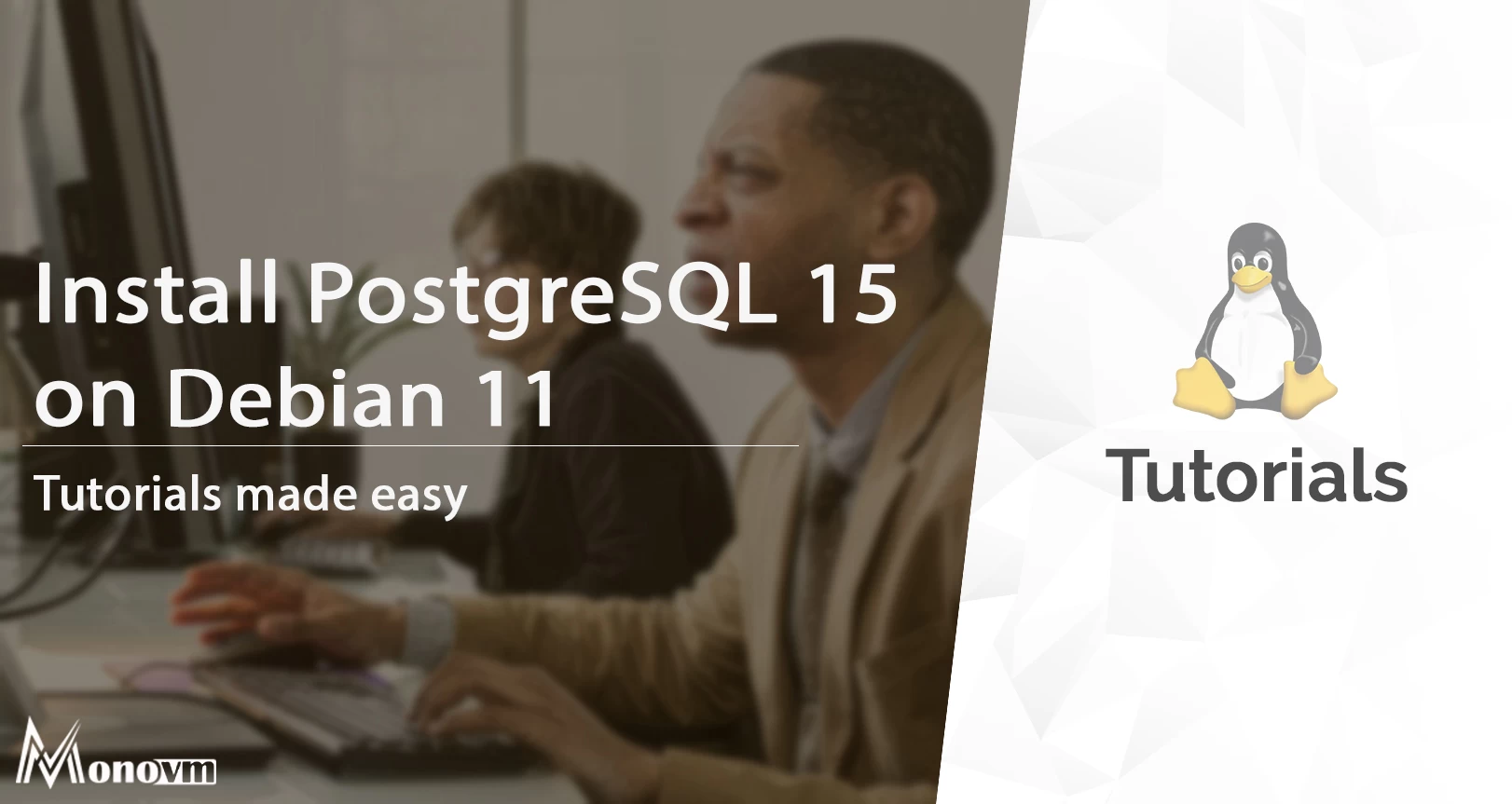List of content you will read in this article:
Welcome to our comprehensive guide on installing PostgreSQL (Postgres) on Debian 11 (Debian GNU/Linux). PostgreSQL, renowned for its reliability, robustness, and performance, is a preferred choice for many developers and database administrators working with complex data workloads. Whether you're setting up a new database server, migrating from another system, or simply curious about PostgreSQL, this tutorial is designed to walk you through the installation process step by step. Tailored for Debian 11 users, this guide will cover everything from the prerequisites to the final configuration, ensuring a smooth and successful installation of PostgreSQL on your system. Let's dive into the world of advanced open-source database solutions and unlock the full potential of your data with PostgreSQL.
Introduction
PostgreSQL 15 is a powerful and reliable open-source object-relational database system that provides an extensive data storage and management feature set. It is highly scalable, allowing users to store and manage large amounts of data while providing robust performance and reliability.
Debian 11, on the other hand, is a powerful, secure, and user-friendly operating system that provides an ideal platform for running PostgreSQL 15. Debian 11 is highly customizable and offers many features that make it easy to deploy, manage, and maintain PostgreSQL 15. PostgreSQL 15 and Debian 11 provide a comprehensive data storage and management solution.
How to install PostgreSQL 15 on Debian 11
Before we get started, ensure you have root access to your Debian 11 system. This guide assumes that you have a basic understanding of the Linux command line and package management.
Update and upgrade the system.
The first step is to ensure that your system is up to date. Open the terminal and run the following commands:
Syntax: sudo apt update
Syntax: sudo apt upgrade
This will update and upgrade all the installed packages to their latest versions.
Add PostgreSQL repository
By default, Debian 11 ships with PostgreSQL version 13. If you want to install version 15, add the PostgreSQL repository to your system. To do this, run the following command:
Syntax: sudo sh -c 'echo "deb http://apt.postgresql.org/pub/repos/apt/ $(lsb_release -cs)-pgdg main" > /etc/apt/sources.list.d/pgdg.list'
Import the PostgreSQL repository key
Next, we need to import the PostgreSQL repository key. This will ensure that the packages we install are from a trusted source. Run the following command:
Syntax: wget --quiet -O - https://www.postgresql.org/media/keys/ACCC4CF8.asc | sudo apt-key add -
This will download and import the PostgreSQL repository key.
Install PostgreSQL 15
Now that we have added the PostgreSQL repository and imported the key let's install PostgreSQL 15. Run the following command:
Syntax: sudo apt install postgresql-15
This command will install PostgreSQL 15 along with all its dependencies.
🚀 Just mastered installing PostgreSQL on Windows, Mac, or Linux? Great job! But there's more to learn. Dive deeper into the world of databases with our comprehensive guides. Whether you're looking to optimize performance, secure your data, or explore advanced features, we've got you covered. Click here to continue your journey into database mastery and ensure your installations are top-notch!
Initialize the database cluster.
After installing PostgreSQL, we need to initialize the database cluster. Run the following command:
Syntax: sudo pg_createcluster 15 main --start
This command will create a new PostgreSQL cluster called "main" for version 15 and start the server.
Verify the installation
To verify that PostgreSQL is running, we can use the following command:
Syntax: sudo systemctl status postgresql@15-main
This should output the status of the PostgreSQL server.
Congratulations! You have successfully installed PostgreSQL 15 on your Debian 11 system. You can now start using PostgreSQL and its advanced database management features.
🚀🚀Unlock the Power of Linux: Elevate Your Online Presence with our Cutting-edge Linux VPS Solutions! 🚀🚀
Final word
This guide has gone through the steps required to install PostgreSQL 15 on Debian 11. We started by updating and upgrading the system, added the PostgreSQL repository, imported the repository key, installed PostgreSQL 15, initialized the database cluster, and verified the installation.
- PostgreSQL is an open-source relational database management system (RDBMS). It is known for its advanced features, including support for parallel processing, extensibility, and robust data integrity.
- Some other features of PostgreSQL that make it a popular choice include its support for ACID (atomicity, consistency, isolation, and durability) transactions, its ability to handle complex queries, and various programming languages and platforms.
- To install PostgreSQL on Debian 11, you can follow these steps:
- Open a terminal window and log in as a root user
- Type "apt-get update" to update the package list
- Type "apt-get install postgresql" to install PostgreSQL
- Once the installation is complete, you can use the "psql"

I'm fascinated by the IT world and how the 1's and 0's work. While I venture into the world of Technology, I try to share what I know in the simplest way with you. Not a fan of coffee, a travel addict, and a self-accredited 'master chef'.